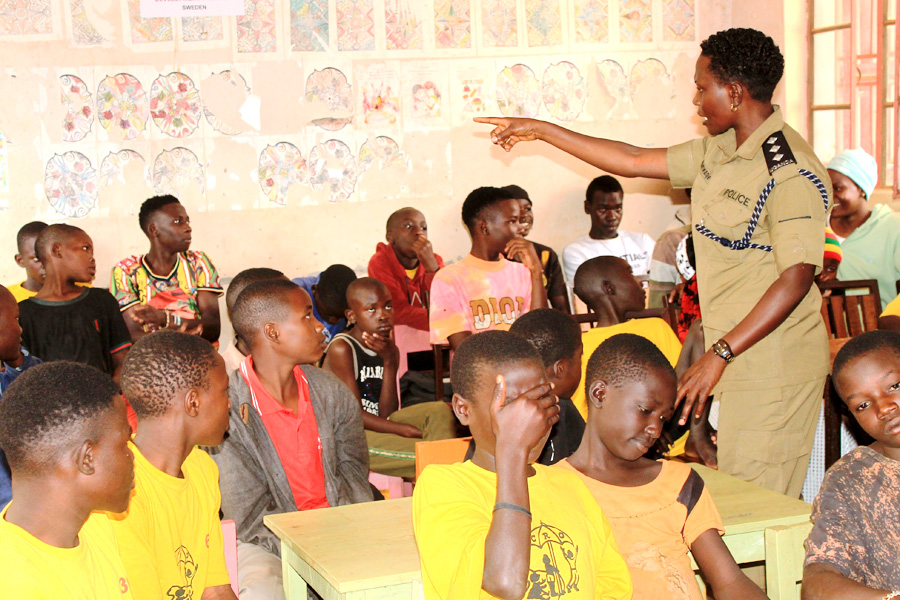Opinion: Governments should build education systems that can survive crises
Durman Troy Matsiko
Covid-19 has sent shockwaves across the globe. The public health crisis, unprecedented in our lifetimes, has caused severe human suffering and loss of life.
The exponential rise in infected patients and the dramatic consequences of serious cases of the disease have overwhelmed hospitals and health professionals and put significant strain on the health sector.
As governments grappled with the spread of the disease by closing down entire economic sectors and imposing widespread restrictions on mobility, the public health crisis evolved into a major economic crisis which is expected to burden societies for years to come.
The Covid-19 pandemic has not stopped at national borders. It has affected people regardless of nationality, level of education, income or gender. But the same has not been true for its consequences, which have hit the most vulnerable hardest.
Education is no exception.
Students from privileged backgrounds, supported by their parents and eager to learn, could find their way past closed school doors to alternative learning opportunities. Those from disadvantaged backgrounds remained alienated when their schools shut down.
This crisis has exposed the many inadequacies and inequities in our education systems – from access to internet and computers needed for online education, and the supportive environments needed to focus on learning, up to the misalignment between resources and needs.
While the educational community has made concerted efforts to maintain learning continuity during this period, children and students have had to rely more on their own resources to continue learning remotely through the internet, television or radio. Teachers also have had to adapt to new pedagogical concepts and modes of delivery of teaching, for which they may not have been trained. In particular, learners in the most marginalized groups, who don’t have access to digital learning resources or lack the resilience and engagement to learn on their own, are at risk of falling behind.
The COVID-19 pandemic has also had a severe impact on higher education as universities closed their premises and countries shut their borders in response to lockdown measures.
Although higher education institutions were quick to replace face-to-face lectures with online learning, these closures affected learning and examinations as well as the safety and legal status of international students in their host countries.
Perhaps most importantly, the crisis raises questions about the value offered by a university education which includes networking and social opportunities as well as educational content.
To remain relevant, universities will need to reinvent their learning environments so that digitalisation expands and complements student-teacher relationships.
However, the challenges do not end with the immediate crisis. In particular, spending on education may be compromised in the coming years. As public funds are directed to health and social welfare, long-term public spending on education is at risk despite short-term stimulus packages in some countries.
Private funding will also become scarce as the economy weakens and unemployment rises. At tertiary level, the decline in the international student mobility following travel restrictions is already reducing the funds available in countries where foreign students pay higher fees.
More widely, the lockdown has exacerbated inequality among workers. While teleworking is often an option for the most qualified, it is seldom possible for those with lower levels of education, many of whom have been on the front lines in the response to the pandemic, providing essential services to society.
All this has implications for education, which depends on tax money but which is also the key to tomorrow’s tax income.
Decisions concerning budget allocations to various sectors (including education, healthcare, national security and defense) depend on countries’ priorities and the prevalence of private provision of these services.
Education is an area in which all governments intervene to fund, direct or regulate the provision of services.
As there is no guarantee that markets will provide equitable access to educational opportunities, government funding of educational services is needed to ensure that education is not beyond the reach of some members of society.
However, government funding on education often fluctuates in response to external shocks, as governments reprioritize investments.
The slowdown of economic growth associated with the spread of the virus may affect the availability of public funding for education in many countries, as tax income declines and emergency funds are funnelled into supporting increasing healthcare and welfare costs.
As we enter the Covid-19 recovery phase, it will be critical to reflect on the role of educational systems – and particularly vocational education – in fostering resilient societies.
The global health crisis and the lockdown that followed have brought to the fore professions that have often been taken for granted, renewing our awareness of their value to society.
This has helped restore a sense of esteem for those workers who have worked relentlessly during this time to keep economies afloat.
Through their role in developing the competencies and skills needed for tomorrow’s society, education systems need to be at the heart of this planning.
This includes rethinking how the economy should evolve to guard against adversity, and defining the skills, education and training required to support it.
This also means working in close collaboration with other government sectors and the private sector to increase the attractiveness and labor-market prospects of certain professions, including those considered paramount for the common good.
Real change often takes place in deep crises, and this moment holds the possibility that we won’t return to the status quo when things return to “normal”.
While this crisis has deeply disruptive implications, including for education, it does not have predetermined outcomes. It will be the nature of our collective and systemic responses to these disruptions that will determine how we are affected by them.
In this sense, the pandemic is also a call to renew the commitment to the Sustainable Development Goals.
Ensuring that all young people have the opportunity to succeed at school and develop the knowledge, skills, attitudes and values that will allow them to contribute to society is at the heart of the global agenda and education’s promise to our future society.
The current crisis has tested our ability to deal with large-scale disruptions. It is now up to us to build as its legacy a more resilient society.
The author is a digital marketer













